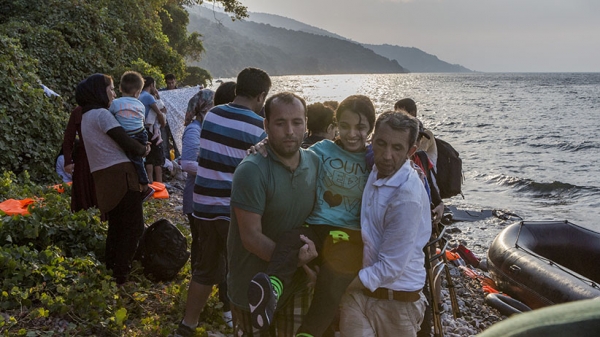Have you ever wondered how conflicts and violence can affect people with disabilities? It is necessary to realize that a country focused on interior clashes obviously will not give the right importance to this fragile category of people.
Nunjeen Mustafa is a young girl who suffers from a physical disability. She was raised in Syria and lived through the ongoing conflict within her country. Thanks to her siblings, she left Syria and faced a long and hard journey with her elder sister who carried her wheelchair to escape and find refuge in Europe. Once arrived in Germany she became a disability rights advocate and an activist. Her experience gives many sparks to understand the real conditions of people with fewer opportunities. That's why last week during the 13th session of the Conference of States Parties to the Convention on the Rights of Persons with Disabilities she declared: “I have become disappointed. From what I see, nothing has practically changed for people with disabilities in Syria and other places where there is war or a humanitarian crisis.” The goal of this event focuses on winning the difficulties around the application of the Resolution 2475, June 2019, the first addressed to analyse the consequences of conflicts on people with disabilities. Just like Mustafa explained in 2019 to the Security Council, many people with disabilities risk being abandoned as for the families sometimes it becomes hard to look after them while trying to save themselves from the attacks. Human Rights Watch reported that the situation is similar in the Central African Republic, Cameroon, Gaza, South Sudan. Also, the ones who reach safety cannot access food, sanitation, and medical assistance correctly.
Lack of action on the ground is the big issue: the Resolution is a revolutionary document, however, putting its principles into practice is quite slow. Mustafa underlined to the Security Council and United Nations (UN) that collecting data and providing targeted funding so that people with disabilities can be heard and no longer be invisible can make the difference.
To raise awareness about this topic, it is also suggested to read her story “The Girl from Aleppo”, co-authored by the journalist Christina Lamb.
To learn more, please read:
https://www.unhcr.org/nujeen-mustafa.html
https://www.hrw.org/news/2020/12/10/call-protect-people-disabilities-armed-conflict







